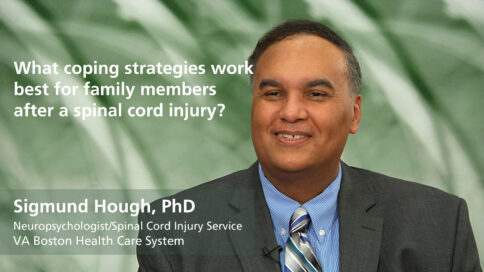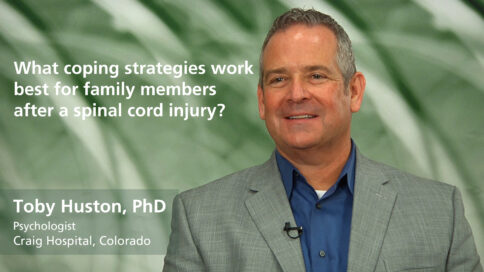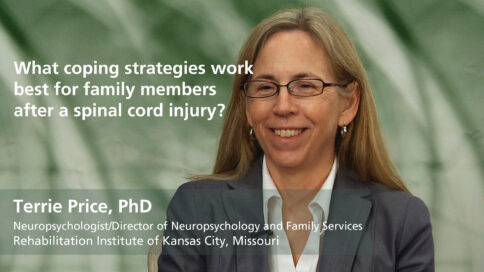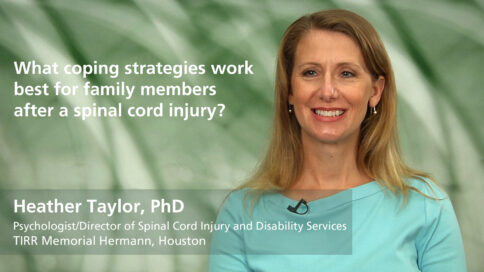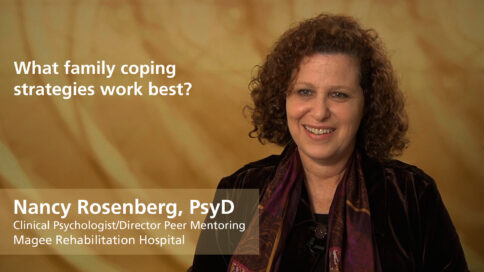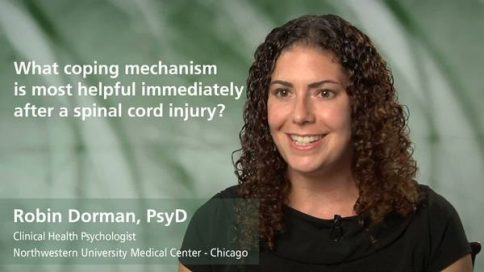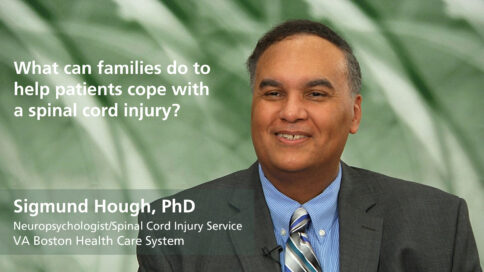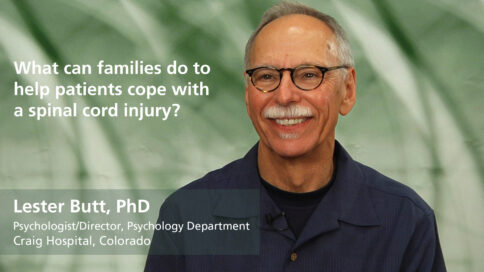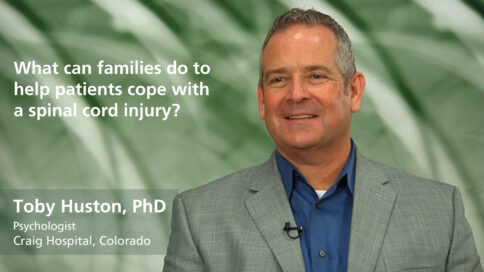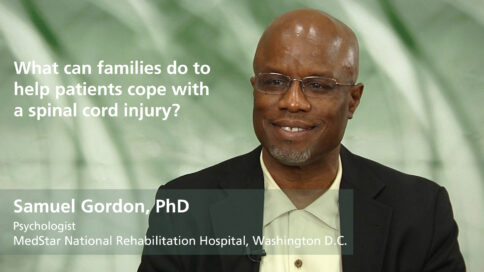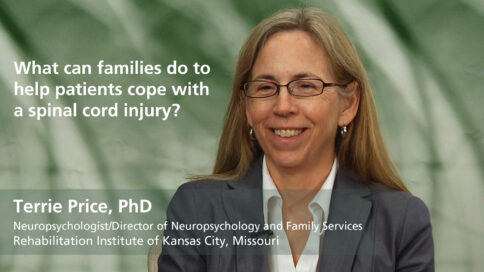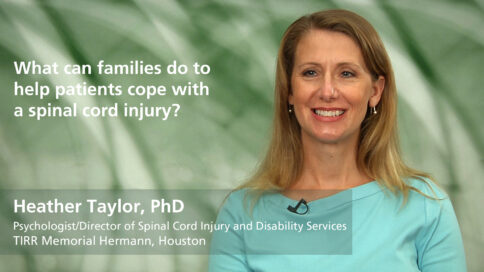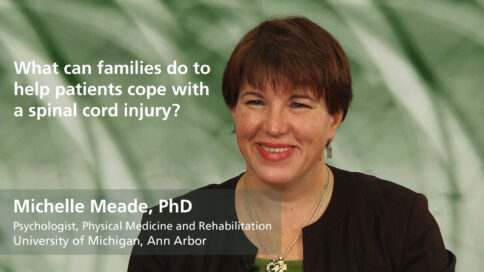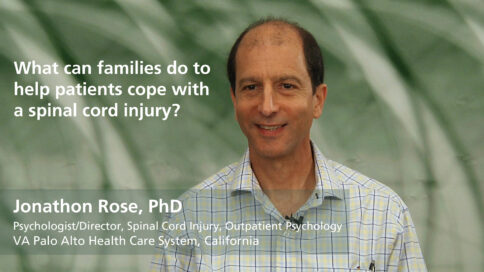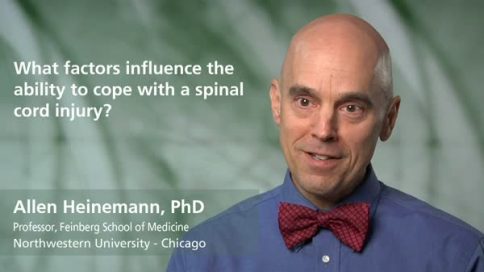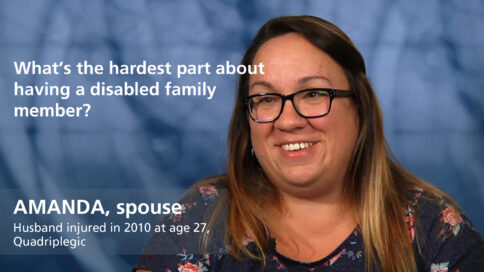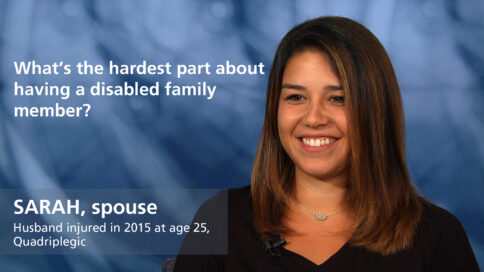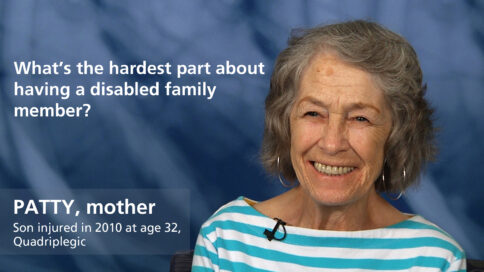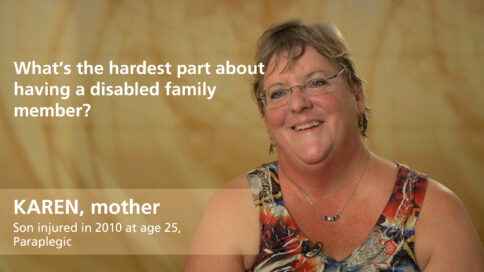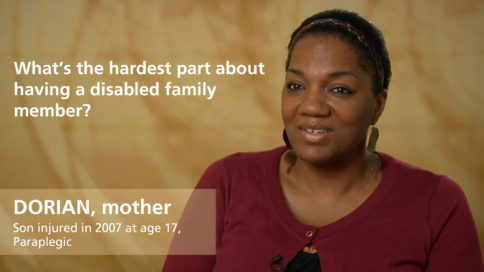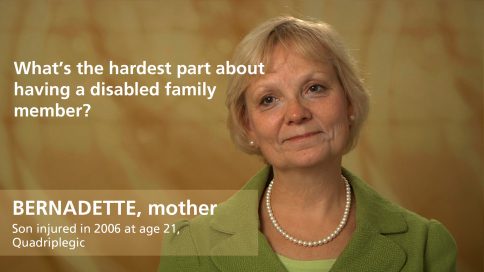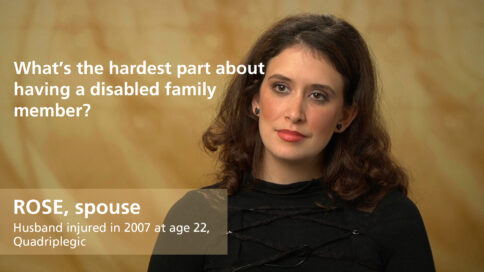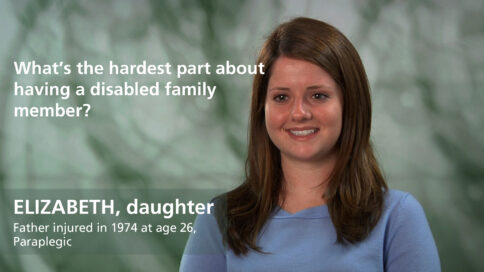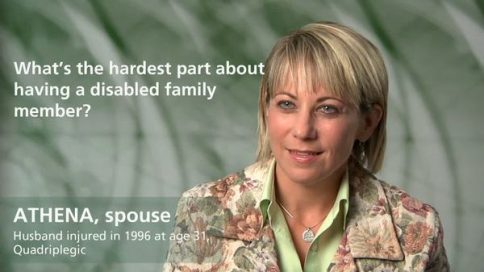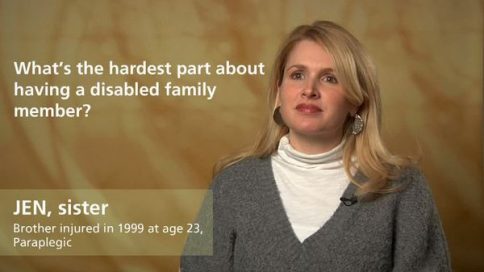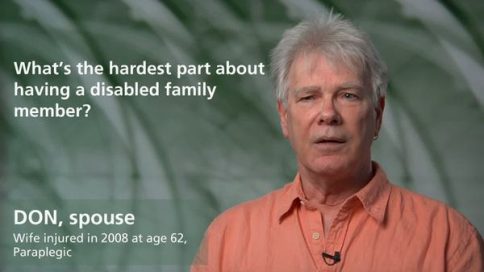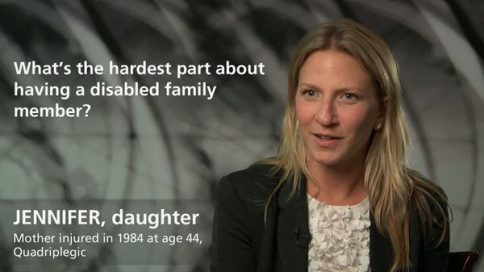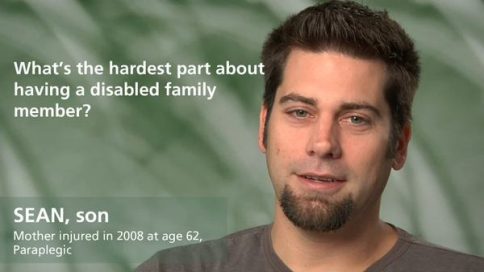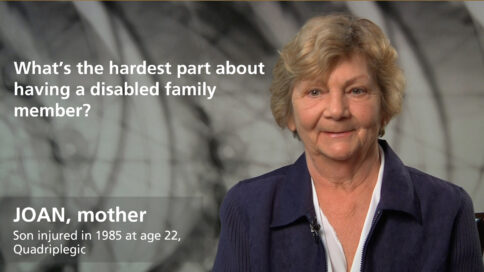What coping strategies work best for family members after a spinal cord injury? - Jonathon Rose, PhD
|
|
What coping strategies work best for family members after a spinal cord injury? |
|
Jonathon Rose, PhDPsychologist/Director Spinal Cord Injury, Outpatient Psychologist, VA Palo Alto Health Care System, CA |
||
| Read Bio | More Videos by Jonathon Rose | |
|
Share |
||
Transcript
To the extent that you can, try to rely on what worked for you before, and it’s likely to work now. There are times when you don’t really have to actually do anything—and then honestly, denial can be very helpful. It really alleviates all of your anxiety and depression, but it’s no good if you really need to act. So then, some people are very organized—they make lists, they get input from other people. Other people like to be more meditative, some people need to exercise. So whatever worked for you before is very likely to work now. It’s really important to differentiate carefully between your own thoughts and feelings, and the thoughts and feelings of the person you’re caring for. I actually did a lot of research on this. And so people tend to assume “well, if that was me, I’d feel that,” and so the other person might be feeling it. And, that’s very often not true, it’s very important to ask, and to keep that communication open, and really be aware of what your feelings are and what’s that other person’s. And that will really help you to cope and take care of yourself.
Show Less|
|
||
add
What coping strategies work best for family members after a spinal cord injury? |
||
Jonathon Rose, PhDPsychologist/Director Spinal Cord Injury, Outpatient Psychologist, VA Palo Alto Health Care System, CA |
More Videos by Jonathon Rose | |
| Transcriptadd | share | |
To the extent that you can, try to rely on what worked for you before, and it’s likely to work now. There are times when you don’t really have to actually do anything—and then honestly, denial can be very helpful. It really alleviates all of your anxiety and depression, but it’s no good if you really need to act. So then, some people are very organized—they make lists, they get input from other people. Other people like to be more meditative, some people need to exercise. So whatever worked for you before is very likely to work now. It’s really important to differentiate carefully between your own thoughts and feelings, and the thoughts and feelings of the person you’re caring for. I actually did a lot of research on this. And so people tend to assume “well, if that was me, I’d feel that,” and so the other person might be feeling it. And, that’s very often not true, it’s very important to ask, and to keep that communication open, and really be aware of what your feelings are and what’s that other person’s. And that will really help you to cope and take care of yourself.
